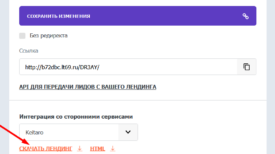You can hardly deny that proxies are indispensable for anyone who needs to manage multi-accounts for security, anonymity and stable income. However, with so many different proxies available, figuring out how to choose the best one for your needs is a challenge. This article will help you decide! It will discuss three most popular types of proxies: server proxies, resident proxies and mobile proxies. This will give you an understanding when deciding which one best meets your needs.
P.S. At the end of the article, we list and answer some popular questions. Don’t miss them 🙂
Server proxies
Server proxies are a type of proxy whose IP addresses are issued by data centers and cloud hosting services such as AWS. These proxies are often used for anonymous Internet access because they are easily accessible and have high data transfer rates. However, the disadvantage of using server proxies is that they are easier to detect because the same IP address of these proxies is used by many other users.
Pros:
- Cheap: Server proxies are the cheapest because they use IP addresses from data centers, which are easy to obtain.
- Speed: Server proxies naturally have a wide communication channel and have a high data transfer rate.
- Constant availability: Server proxy IP addresses are available all day long because the data centers never shut down, allowing them to provide 99% uptime stability. In addition, quantity is never an issue because data center IP addresses are generated in large quantities.
Cons:
- Not clean: Some server proxy IP addresses come from a public proxy pool. Often they have been used by someone before, and this history of use can adversely affect data collection speed or even determine whether a target site will flag you and block that IP address.
- Easily detected: Server proxy IP addresses are usually only effective for sites with simple antifraud mechanisms, but they are easily detected by sites with strong antifraud mechanisms.
- Few locations: Because server proxies are cloud-based, their availability is limited in many locations.
Resident Proxies
Resident proxies use IP addresses provided by home ISPs. Because the IP addresses of these proxies are tied to real physical devices, it is easy to use them to mimic ordinary Internet users as they come online from their homes.
There are two types of resident proxies:
1)Static: With this type of proxy, your real IP address will be hidden behind one single resident IP address. You will use that IP until you switch to another proxy or turn it off altogether. Sometimes this is useful, especially for websites and social networking sites where it’s important to use the same IP address on the same account.
2) Dynamic: By using this type of proxy, your real IP address will be hidden by many other IP addresses, which may alternate with each other after a certain time or upon request. These IP addresses are part of different subnets connected by a complex global network of IP addresses.
Pros:
- Authenticity: Resident proxy IP addresses seem more real because they are issued by a real, home ISP.
- High anonymity: Resident proxies are considered highly anonymous because they use IP addresses issued to users by Internet service providers, which makes it difficult to track the user’s IP address.
- Low chance of blocking: Since resident proxies are harder to detect, the probability of being banned is lower than with other types of proxies.
Cons:
- Expensive: Resident proxies are clearly more expensive than server proxies because they use IP addresses issued to users by Internet service providers.
- Slower than other types of proxies: Resident proxies can be a bit slower than other types of proxies because they use IP addresses issued by ISPs.
- Limited availability: Compared to other types of proxies, resident proxies are less accessible.
Mobile Proxies
Mobile proxies are becoming increasingly popular in the world of Internet privacy. These proxies use mobile networks to connect to the Internet, providing users with a higher level of anonymity than traditional proxies. Because of their high anonymity, mobile proxies are often used for web scraping and social media automation, as well as other tasks requiring high levels of privacy.
One of the key advantages of mobile proxies is their ability to bypass GEO restrictions. Users can access content from different regions without being detected, making them a great tool for those who value their privacy. In addition, mobile proxies are difficult to detect, which makes them a favorite among anyone who wants to remain anonymous online. You can read this article and learn more about how mobile proxies work.
Pros:
- High anonymity: Mobile proxies are considered the most anonymous type of proxy because they use a mobile network to connect to the Internet, making it difficult to track the user’s IP address.
- Low chance of blocking: Since many users are connected to the same mobile IP address at the same time, many sites hesitate to block all those IPs, even if suspicious activity is detected from one of them.
- Suitable for the automation of social networks: Mobile proxies are often used for social media automation because they can mimic real mobile Internet users.
Cons:
- Expensive: Mobile proxies are considered the most expensive type of proxy because they use mobile communication, which is more expensive than other types of communication.
- Slower than other types of proxies: Mobile connections can be slower than other types of connections, so mobile proxies can be slower than other types of proxies.
What proxies should I choose?
There are many factors to consider when choosing a proxy. The first step is to determine the purpose of the proxy. As discussed earlier, different types of proxies have their unique strengths and weaknesses. For example, mobile proxies are ideal for validating the user experience of using mobile apps and viewing mobile ads. Meanwhile, resident proxies are less likely to raise suspicions from antifraud.
In addition to the purpose of use, you also need to consider speed, security and of course your budget. If speed is your main priority, server proxies are the most appropriate choice. However, if security is more important to you, it is better to use resident proxies. As for the budget, it is worth noting that home and mobile proxies are usually more expensive than server proxies. Nevertheless, each provider has its own prices and rates, so the budget does not always have the final say in the choice.
As you can see, a combination of all of these factors is imperative to consider when choosing the ideal proxy for your needs. While some factors may be more important than others, it is important to consider them all in order to make an informed decision.
Frequently Asked Questions
1. Are there any other types of proxies?
Yes, proxies can be classified by protocol (HTTP(S) and SOCKS5), usage access (private and public), and many other factors.
2. Is proxy geolocation important?
Yes, geolocation does matter. The connection speed is directly affected by the location of the proxy. In addition, some online content has geographical restrictions. You won’t be able to access it if your proxy is not in the correct GEO.
3. How do I check the IP address of my proxy?
You can check the IP address on scanner sites, such as IP2location, Whoer.net, DB-IP, IPinfo etc. It should be noted that sometimes these sites display different locations of the same IP address. As a rule, this is due to the fact that the IP address itself is controversial, it causes different analyses by IP libraries. In this case, you will need to contact the proxy provider to get a different, better proxy.
4. Can I get 100% success with multi-accounting using proxies?
To verify network identity, sites detect and analyze not only the IP address, but also other browser fingerprints such as User-Agent, browser version, system language, etc., so using proxies alone is not enough for disguise. A safer way of multi-accounting is to use a proxy together with an anti-detect browser. In this way, you can hide your real IP address and disguise other digital fingerprint parameters. However, there is no universal method that can guarantee 100% success in multi-accounting. Since a large number of Account Bans occur due to inadequate operations when warming up your account or running ads, your skills and techniques are very important, in addition to a good anti-detect browser and quality proxies.









